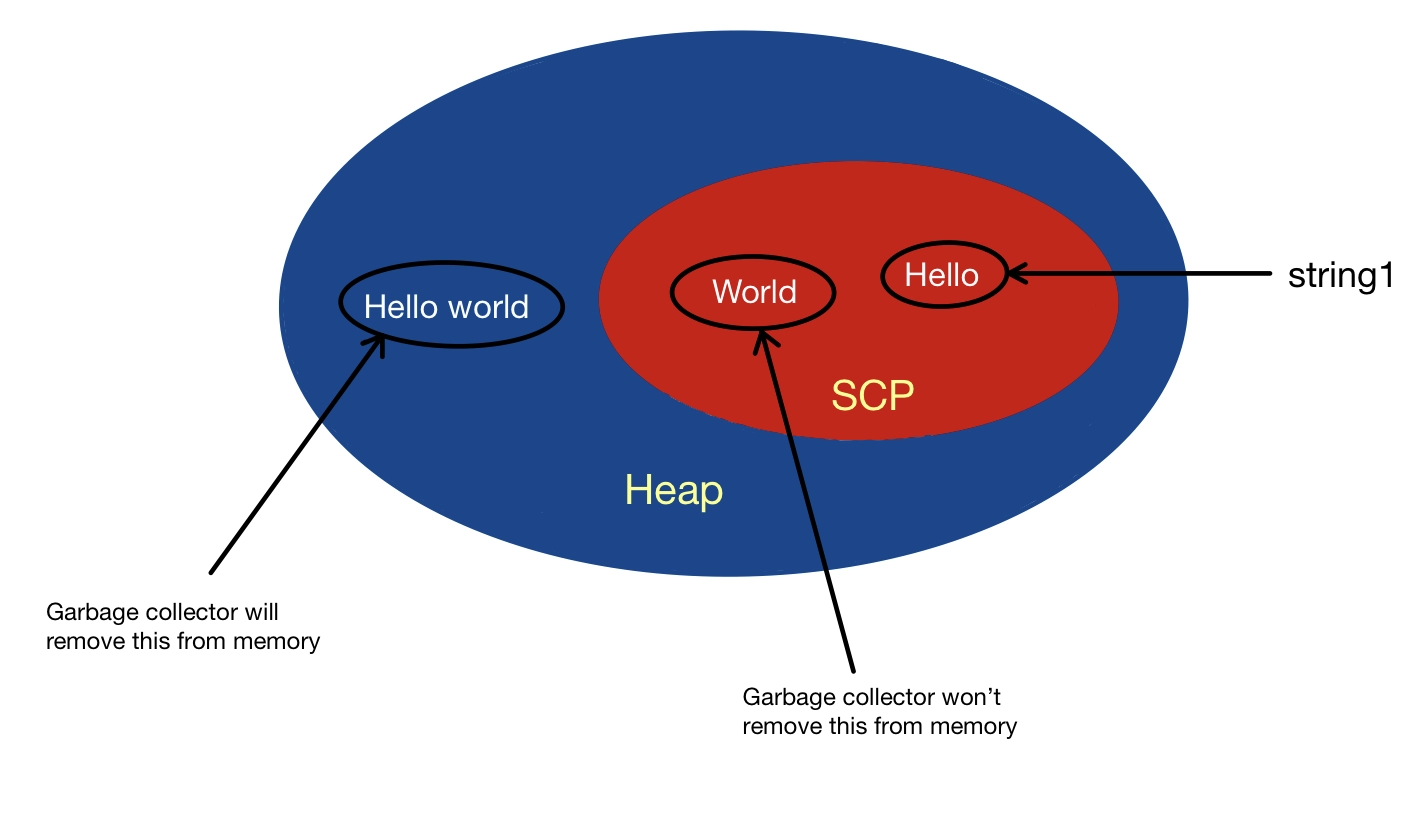Why Are Strings Immutable in Java? Safety And Security and Performance Conveniences
Why Are Strings Immutable in Java? Safety And Security and Performance Conveniences
Blog Article
The Evolution of Unalterable String Handling: A Crucial Aspect of Software Program Growth
In the intricate realm of software application growth, the handling of immutable strings stands as a foundation that has undertaken considerable development over time. From its humble origins to the complicated tests experienced in early executions, the trip of immutable string adjustment has been an important aspect of software engineering. As we navigate via the historic landscape of this basic principle, mapping the innovations, security effects, and emerging trends, we find ourselves at a time where the intrinsic value of understanding this advancement comes to be increasingly obvious.
Origins of Immutable Strings
The principle of immutable strings traces back to the very early days of programs languages when programmers sought to boost the dependability and protection of data dealing with mechanisms. Unalterable strings refer to strings that can not be changed after they are created. This essential idea was introduced to resolve problems pertaining to information stability and stop unintended modifications to critical info kept as strings.

Furthermore, unalterable strings add to enhancing the overall safety of software application systems (Why are strings immutable in Java?). By preventing unapproved celebrations from meddling with delicate string data, unalterable strings help minimize the risk of data violations and unapproved accessibility to secret information. This fundamental concept remains to play an important function in modern-day shows languages and continues to be a keystone of robust and safe and secure software program development techniques
Very Early Challenges and Solutions
One of the primary obstacles in handling unalterable strings was handling memory successfully. Additionally, ensuring that strings remained unaltered proved to be complicated, particularly when several components of the codebase required to access and customize information.
To attend to these difficulties, programmers started implementing information encryption methods to shield delicate details kept in immutable strings. By integrating security and hashing methods into the handling of immutable strings, programmers substantially boosted the protection and integrity of data within software application systems.

Advancements in String Immutability
In software application advancement, a remarkable development in the handling of unalterable strings has actually emerged with advancements in data security and hashing techniques. By utilizing safe and secure hash formulas like SHA-256 or cryptographic methods such as AES security, designers can guarantee that delicate information kept in immutable strings stays tamper-proof and safe and secure. These improvements have actually strengthened the honesty and privacy of data within applications, especially in sectors where information safety and security is paramount, such as cybersecurity, finance, and medical care.
Additionally, developments in string immutability have led the way for enhanced performance optimization. Immutable important link strings permit more reliable memory monitoring and caching methods, decreasing the expenses connected with constant string manipulations (Why are strings immutable in Java?). This optimization not only enhances the overall responsiveness of software application applications but likewise contributes to much better scalability and resource utilization
Safety Ramifications and Best Practices
With the structure laid by innovations in string immutability, understanding the security ramifications and applying finest practices becomes paramount in protecting sensitive information within software program applications. Immutable strings play an important role in boosting safety and security by protecting against unapproved adjustments to information, making certain information stability throughout the application's lifecycle. By using immutable strings, developers can mitigate usual vulnerabilities such as injection assaults, buffer overflows, and information meddling, which are frequently manipulated by harmful stars to jeopardize systems.
This includes encrypting information at remainder and in transportation, applying appropriate accessibility controls, employing safe coding methods, and consistently updating software application parts to patch known susceptabilities. By integrating these safety steps and best practices into software development processes, companies can much better safeguard their information assets and minimize the risk of safety and security violations and data leakages.
Future Trends in String Handling
Amidst the ever-evolving directory landscape of software program growth, the trajectory of string handling is positioned to witness substantial improvements and technologies. Designers are exploring new algorithms and data frameworks to enhance the speed and effectiveness of string operations.
In addition, another pattern imminent is the combination of expert system (AI) and device understanding (ML) in string managing tasks. AI-powered devices are being created to automate and streamline various string adjustment procedures, causing increased performance and precision in software program growth process.
In addition, there is an expanding focus on enhancing the safety and security facets of string dealing with through advanced encryption methods and safe coding techniques. As cyber hazards continue to evolve, guaranteeing the honesty and confidentiality of data within strings is becoming a top concern for developers. By taking on robust safety steps, such as encryption at rest and en route, designers can minimize the risks related to string manipulation vulnerabilities.
Final Thought
Finally, the development of immutable string handling has actually been a critical facet of software advancement, starting from its beginnings to the innovations made in recent times. Early difficulties have actually been resolved through ingenious services, causing better safety methods in managing strings. It is essential for developers to remain upgraded on the current trends in string immutability to guarantee the toughness and safety of their software applications.
Unalterable strings refer to strings that can not be altered after they are developed. Why are strings immutable in Java?. By protecting against unauthorized events from tampering with sensitive string information, unalterable strings help alleviate the danger of data violations and unapproved access to confidential info. By including encryption and hashing techniques right into the handling of immutable strings, programmers substantially improved the protection and dependability of information within software application systems
Unalterable strings enable for more effective memory management and caching strategies, minimizing the expenses connected with constant string manipulations. Unalterable strings play an essential role in look here boosting safety by preventing unapproved modifications to information, ensuring data honesty throughout the application's lifecycle.
Report this page